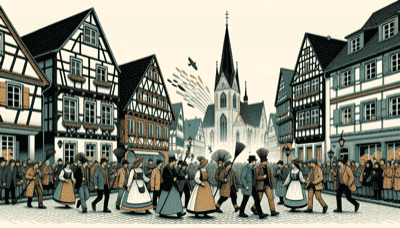We're here to help you keep count of the days to or since a date. Just click the button below and enter your chosen date to get started. Also choose the suggested days or search for a special day above #countingthedays

Carnival, also known as "Karneval," "Fasching," or "Fastnacht" in Germany, has its origins rooted in various Christian and pre-Christian traditions. Historically, it marks the period leading up to Lent, providing a last celebration of excess before the 40 days of fasting that lead up to Easter.
The tradition has evolved over centuries, incorporating medieval church practices, local pagan customs, and more. Different regions of Germany celebrate in their own unique ways, but common elements include parades, costumes, masks, and satirical performances.
Celebrations typically peak during the week before Ash Wednesday. Major cities like Cologne, Düsseldorf, and Mainz are known for their large-scale parades and street festivities. Participants often dress up in elaborate costumes and masks to parade through the streets.
"Rosenmontag" (Rose Monday) is considered the highlight of the Carnival season with processions featuring floats that often satirize political themes. There are also balls and parties where people dance to traditional music.
Ash Wednesday marks the end of Carnival and the beginning of Lent. It is a day of reflection and penitence for Christians. In contrast to the revelry of Carnival, Ash Wednesday is characterized by a more somber tone.
On this day:
Throughout Germany, Carnival and Ash Wednesday offer a stark contrast between celebration and solemnity: one marking an outburst of life before retreating into contemplation leading up to Easter.